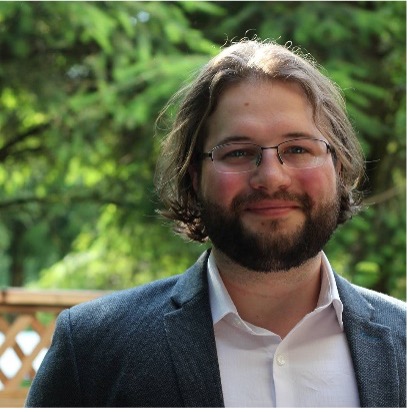
Postdoctoral fellow Chapin Korosec, currently based in the Department of Mathematics & Statistics in York University's Faculty of Science, has received the Michelson Postdoctoral Prize Lectureship for his exceptional early-career research achievements during his PhD in physics.

As the award recipient, Korosec will spend one week in residence at the Department of Physics at Case Western Reserve University in the U.S. in April 2025 and deliver a colloquium and two technical lectures.
His colloquium will highlight his PhD research in designing and implementing the first synthetic protein-based molecular motor at Simon Fraser University, while his other talks will delve into his postdoctoral research at York University conducted under the supervision of Professor Jane Heffernan.
"This recognition is one of the more prestigious international awards given to postdoctoral fellows," says Korosec. "It is nice to be recognized, but it also provides impetus to keep working and to continue to do more interesting research."
Korosec’s postdoctoral research is focused on developing mathematical and machine learning approaches to understanding the human immune response to viruses and vaccination, as well as how viruses infect their hosts. His work is interdisciplinary and involves working with clinicians and public health researchers to understand diseases and immunological trends to form a more comprehensive view of infection and immune system dynamics.
"I believe mathematics plays a fundamental role in advancing our fundamental understanding of immunology," Korosec says. "Our research meaningfully impacts our fundamental understanding of the immunological protection afforded from vaccination, and attempts to untangle the complex immunological interactions that lead to our vaccine-gained immunity."
When he shares his research in his colloquium and technical lectures, Krososec says he hopes "the audience will come away with a set of tools that will prove useful to them in their own research endeavours."
Korosec's research at York is supported by the Natural Sciences and Engineering Research Council of Canada Postdoctoral Fellowships program, as well as the Artificial Intelligence for Public Health program.
